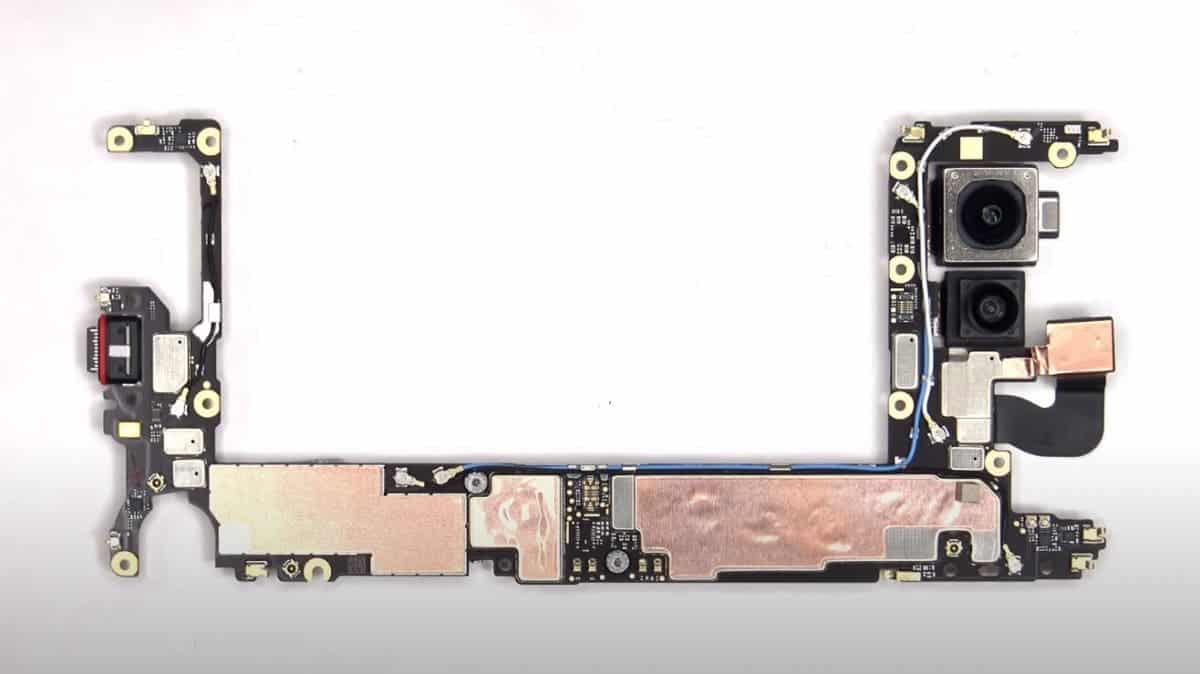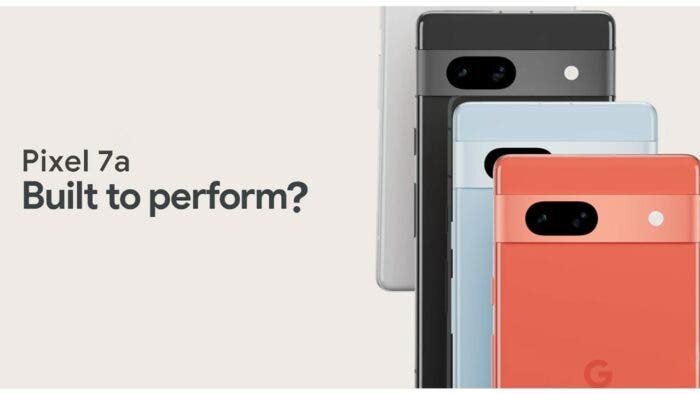After months of leaks, the Google Pixel 7a finally became official at the Google IO event yesterday. And in case you missed all our previous coverage, Google has utilized the same Tensor G2 chipset found in the Pixel 7 and 7 Pro for its brand-new “mid-range” smartphone.
So, as the Google Pixel 7a comes with the same silicon, it means that the performance will be similar, right? Well, the case seems to be completely different! As shown in the latest stress test, it seems that Google’s new phone is actually falling behind its more premium cousins.
Tensor G2 on Google Pixel 7a Is Unable to Keep Up in Performance
With the Google Pixel 7a becoming official, a lot of renowned YouTubers are sharing their first impression of the phone. The one whose video is in highlight is Dave2D, who has made a mini-review of the phone after the official announcement. He compared the phone with the Google Pixel 7 to see what really differentiates the phones.
![]()
As you may have guessed, Google did change some minor changes to the hardware of the phone. And as the video goes, Dave2D did start off saying good things about the Google Pixel 7a as it offers a $100 savings from the expensive models. However, things took a dramatic turn at the end of the video.
Dave2D showcased a test that proved that Google took some shortcuts to make the smartphone end up with a $499 price tag. At the Ultra graphics settings, the Google Pixel 7a fails to keep up with the Pixel 7 and 7 Pro in the Genshin Impact gaming test.
![]()
The phone started off great, matching the Tensor G2 performance found in the Google Pixel 7 and 7 Pro. But as you can see, it did not take long for the Pixel 7a to dip below the 60FPS mark. In other words, Google’s brand-new “affordable” phone loses performance much faster than its expensive cousins.
That said, Genshin Impact is a good benchmark marker because it is resource intensive. It can showcase how good phones can handle higher loads. So, you can definitely expect to see the Google Pixel 7a maintain a similar trend in other benchmarking tools.
The Lack of an Extensive Cooling Solution May Explain the Poor Performance
At the official launch event, Google did not explain the cooling solution of the Google Pixel 7a. So, there’s a high chance that the new phone does not have a robust cooling system like the Pixel 7 and Pixel 7 Pro. Secondly, the smaller footprint of the phone may have played a part in the early framerate drop in the stress test.
After all, the small the size of the phone, the faster it will heat up under load. Also, a small footprint prevents manufacturers from integrating a beefed-up cooling solution. However, a previously leaked teardown did reveal that Google utilized proper copper pads and an adequate graphite film to keep the thermals low.

That leaves us with the Tensor G2 chipset. It may be the cause of the poor performance of Google Pixel 7a. After all, the SoC is mass-produced on Samsung’s 5nm process, which is known to be highly inefficient and inconsistent.
No matter what, Google needs to address all the concerns before debuting the Pixel 8 series. And in case you missed it, the Google Tensor G3 will go through Samsung’s 4nm process. Although it is said to be highly focused on power efficiency, things can definitely go wrong.
Nonetheless, you should not really make a decision based on a single test. Instead, wait a bit longer and see how the other Google Pixel 7a units perform. There is a chance that Dave2D might have ended up with a phone that has factory defects.






I did Genshin test on my Pixel 7a but ultra settings + playing in Sumeru area resulted avg. 27.8FPS.
Power efficiency is also bad.
https://androplus.org/en/entry/android-smartphone-benchmark-results/#Power_efficiency